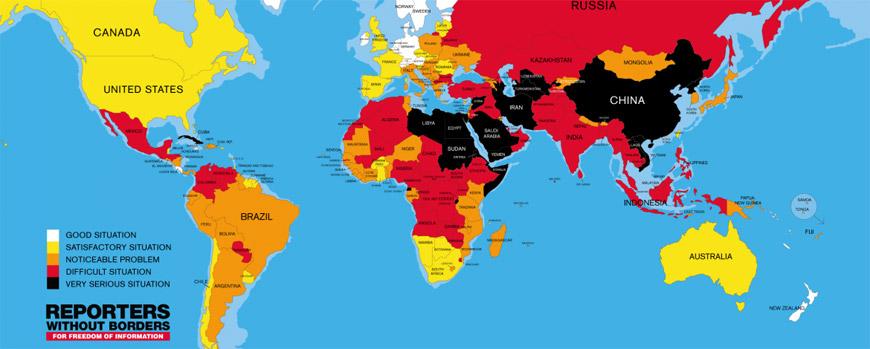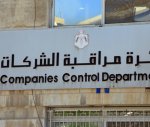You are here
Press freedom better in Kingdom, but ‘more needs to be done’
By Khetam Malkawi , Mohammad Ghazal - Apr 20,2016 - Last updated at Apr 20,2016
AMMAN — Jordan improved 8 ranks on a world index of freedoms of the press in 2015, as media experts said more efforts are needed to amend several pieces of legislation to boost media freedoms.
In its 2016 World Press Freedom Index, the Reporters Without Borders said Jordan ranked 135th last year compared to 143rd place a year earlier.
“The advancement in ranking is good news to Jordan. We believe that media freedom is a main factor to the strength of the country and will continue to support media freedoms,” Minister of State for Media Affairs and Communications Mohammad Momani told The Jordan Times on Wednesday.
“We will continuously work on amending and upgrading legislation to reach further levels of freedoms, and while doing so, we study any amendments carefully and responsibly to ensure protection of media freedoms. We also support efforts to increase the professionalism of media and ensure dissemination of information,” said the minister.
The report said Jordanian journalists are subject to “close monitoring” by authorities and are requested to join Jordan Press Association, which the report said is controlled by the state.
The index indicated that since 2012 and the revision of the Press and Publications Law, authorities increased their control, especially on the news websites.
“Hundreds of websites have been blocked since 2013, mostly because they did not have a licence,” the index stated, adding that journalists are often prosecuted under the anti-terrorism law.
Nidal Mansour, head of the Centre for Defending Freedom of Journalists, told The Jordan Times Wednesday that in 2015, 10 journalists were detained under the Anti-Terrorism Law and the E-Crimes Law, adding that last year witnessed some of the highest numbers of detention of media personnel.
The number of violations against media personnel stood at 57 in 2015 compared to 153 in 2014, “but that does not mean that freedoms improved”, claimed Mansour.
“Although there has been a decline in number of violations, media personnel started to exercise self-censorship more as they are afraid of being detained,” Mansour said.
“2015 is one of the worst years for media freedoms in Jordan. It witnessed the enforcement of a new legislation that is the E-Crimes Law that opened the door for detaining journalists,” said Mansour, warning that self-censorship is expected to increase in 2016.
Nabil Al Sharif, director of Imdad Media Centre and former minister of media affairs, agreed that media freedoms did not witness improvement in 2015.
“The report does not reflect reality. It may indicate an increase in the number and spread of media outlets as a positive factor for improvement in media freedoms, but unfortunately the content created by many media outlets that joined the scene is unprofessional and lacks ethics,” said Sharif.
“There has been a decline in the role and freedoms of traditional media outlets and new media have not been able to fill the vacuum and boost media freedoms,” said Sharif.
On the Arab countries level, Jordan ranked 10th, according to the 2016 World Press Freedom Index.
Jordan was excelled by Tunisia that topped the Arab countries’ list in the index and ranked (96th) globally, while Lebanon came 2nd among the Arab countries (98th), Kuwait came third (103rd), and Qatar fourth (117th).
Other Arab countries that achieved better than the Kingdom are the UAE (119th), Oman (125th), Algeria (129th), Morocco (131st) and Palestine (132nd).
As for the overall ranking, three north European countries head the rankings. They are Finland (ranked first, the position it has held since 2010), Netherlands (second, up 2 places) and Norway (third, down 1). The countries that rose most in the Index include Tunisia (96th, up 30) and Ukraine (107th, up 22).
Countries that came in the bottom of the ranking are Turkmenistan (178th), North Korea (179th) and Eritrea (180th).
The 2016 World Press Freedom Index reflects the intensity of the attacks on journalistic freedom and independence by governments, ideologies and private-sector interests during the past year.
Seen as a benchmark throughout the world, the Index ranks 180 countries according to the freedom allowed to journalists. It also includes indicators of the level of media freedom violations in each region. These show that Europe (with 19.8 points) still has the freest media, followed distantly by Africa (36.9), which for the first time overtook the Americas (37.1), a region where violence against journalists is on the rise. Asia (43.8) and Eastern Europe, Central Asia (48.4) follow, while North Africa, Middle East (50.8) is still the region where journalists are most subjected to constraints of every kind, according to the global index.
Related Articles
AMMAN — Jordan ranks 129th out of 180 nations in press freedom, slipping one place in the 2021 World Press Freedom Index compiled by Reporte
AMMAN — Jordan’s press freedom ranking dropped by three places in 2016 compared to 2015, according to the World Press Freedom IndexThe index
AMMAN — Around 94.1 per cent of media practitioners in Jordan exercise self-censorship while only 3.9 per cent label media freedom as "excel

















